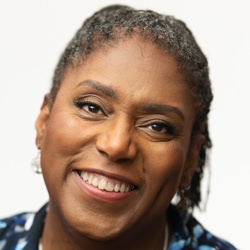
Search Results: understanding
-
In this inspiring audio, Mary takes to a more profound level the traditional NVC self-empathy process of identifying judgments, feelings and needs, by adding a "wrapping" component.
-
- Discover how to bring resonance into your conversations with others
- Learn how resonant language and NVC empathy come together
- Practice consent and saying “no”, even when it is difficult
- Feel the movement into more intimacy in your relationships!
-
This video with Jim and Jori Manske explores how to navigate polarizing conversations.
-
Certified CNVC Trainer Roxy Manning, Phd, shares three steps on how to reflect on what needs are being served when deciding to implement a strategy.
-
If someone asks you to love them as is, try wondering what contributes to their need for acceptance. Loving someone and empathizing with them, doesn't mean you can't make requests for change. Recall that your requests are about your needs, not about them. Understand that requests may not be met due to lack of resources or skills, even if the desire is there. Clarify how important the request is to you and how negotiation can look.
-
When speaking to decision makers about social change issues it helps to communicate with compassion, clarity, curiosity, calm, and respect while seeking to understand their needs. This way there’s a better chance for more trust and connection that’s crucial for a win-win strategy to come about. This may take several conversations.
-
The purpose of boundaries is to prevent harm to yourself and others. You decide what you are available for and what you are not. Boundaries are a clear expression of limits that keep your heart open no matter what.
-
Amidst the Israel/Palestine war we see polarizing media portrayals and the battle for public opinion. Read how one person shares his deep, personal connections to the Israel/Palestine conflict, expresses the trauma and viewpoints of both Palestinian and Israeli experiences -- in a way that aims to transcend polarizations, hold compassion, and understand the complexity on both sides. Despite the immense challenge that defies easy resolution, he holds hope, noting historical reconciliations such as the ones between Germans and Jews.
-
Amidst the Israel/Palestine war we see polarizing media portrayals and the battle for public opinion. Read how one person shares his deep, personal connections to the Israel/Palestine conflict, expresses the trauma and viewpoints of both Palestinian and Israeli experiences -- in a way that aims to transcend polarizations, hold compassion, and understand the complexity on both sides. Despite the immense challenge that defies easy resolution, he holds hope, noting historical reconciliations such as the ones between Germans and Jews.
-
Mourning, grief and celebration is a way to connect with what we love and want to honor. In this trainer tip we learn that these three things can become a way for us to understand our emotions regarding our losses and appreciations.
-
Most of us subject ourselves to so many painful mental jabs and they seldom stimulate helpful change. We can be like a frustrated animal trainer repeatedly whipping an animal, without ever helping the animal to understand what behavior is wanted or offering encouragement. Instead, punishing thoughts can be stepping stones to awareness. We can focus on sensing what we're really aspiring to. This is more likely to eventually produce sustainable change that'll serve us better.
-
There is more to the NVC skill of Observation than the external level of what a video camera sees or hears. In this video, Roxy demonstrates that to fully understand what is happening, we need to know all three layers of observation: External, Internal, and Systemic. 













